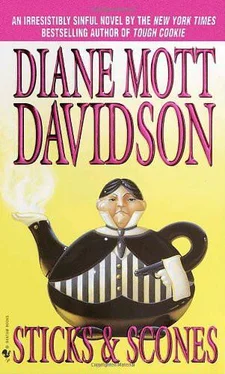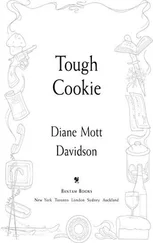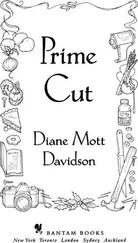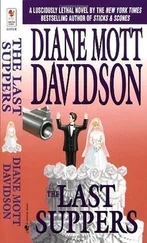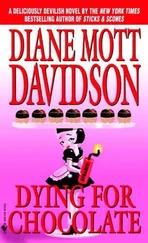Damson-in-Distress Plum Tart
14 tablespoons (1 3/4 sticks) unsalted butter 2 1/4 cups all-purpose flour, plus an additional 3 tablespoons for the filling 3 1/2 tablespoons sour cream, plus an additional cup for the filling ž teaspoon salt 9 Damson or other plums (If using small Italian plums, you may need as many as 24 2 eggs 1 1/2 cups sugar
Preheat the oven to 325°F. Butter the bottom and sides of a 9 x 13-inch glass pan. For the crust, first fit a food processor with the steel blade. Cut the butter into chunks, Place it into the bowl of the food processor along with the 2 1/4 cups flour, 3 1/2 tablespoons sour cream, and salt. Process until the dough pulls into a ball. Gently pat the dough into an even, layer on the bottom of the prepared pan. For the filling, pit and slice the plums into quarters. Cover the prepared crust with rows of sliced plums to completely cover the crust. Beat the eggs with the sugar, 3 tablespoons flour, and 1/2 cup sour cream until well blended. Pour this beaten mixture carefully over the rows of plums. Bake the tart for 45 to 60 minutes, or until the top is golden brown and the custard is set in the middle. (I use a spoon to check the middle of the tart. The custard should be congealed, not soupy.) Allow the tart to cool completely on a rack. Cut into rectangles and serve with best-quality vanilla ice cream. Refrigerate any unserved portion.
Makes 16 servings
“It’s good to have you back,” I said, and hugged him. Fourteen-year-old boys do not like motherly embraces. But if you don’t mind putting your arms around a kid-dying-to-get-away-from-you, you can let him know you care.
“I’m starving,” he announced, peeking into the oven. “And I’ve got a ton of astronomy homework. How long to dinner?”
I told him it would be a few hours and he should wash up for a snack. While he soaped his hands, I fixed him scones, cheddar slices, and a soft drink. When he finished, I told him, he could help Julian set up in the Great Hall, then ask for homework help.
“Michaela’s idea is so cool,” Arch enthused, his mouth crammed with scone. “We’re going to show everybody how to fence, then we’re going to reconstruct a duel where some guy insulted another guy. The insulting guy got stabbed and bled to death.”
I shuddered, remembering the Lauderdales and their threats. “I think anyone who resorts to weapons to resolve conflicts has already lost.”
“Yeah, well, I think that’s why we always yelled that saying on the playground. Y’know, ‘Sticks and stones may break my bones, but names can never hurt me.’ Michaela says that when duels started, they used swords. Then they switched to pistols. You got in a duel with both guys’ packing guns, somebody was going to get whacked.” He sounded ecstatic. I remembered Buddy Lauderdale’s face as he was led away in handcuffs on New Year’s Eve. By the time I commented, “Now theres a happy thought,” Arch had already whisked away.
-20-
At quarter past six, Arch returned to the kitchen to pick up the hot-water baths for the chafers. He reported that he’d done all of his schoolwork, except for astronomy. For that, he had to wait until the stars rose. Might be up late, he added with mock ruefulness, but I let it go.
Julian, meanwhile, fretted that the night’s menu had no gourmet vegetarian dishes. So he scurried about to prepare two of his bistro specialties: a colorful lentil-tomato-scallion salad, and a bowl of baby spinach leaves tossed with a balsamic vinaigrette and topped with slices of goat cheese and tiny dollops of a red onion marmalade he grabbed from the dining-room jam cabinet.
“I might want to get this recipe from Eliot,” I commented, when I tasted the spicy relish. Julian nodded.
Arch, careful to protect his white fencing outfit, put together a heaping basket of warm rolls and butter. As we were loading the lamb roast and fixings onto trays, Eliot appeared.
He was wearing a double-breasted black suit that gave him a vaguely military air - probably a captain-of-the-castle look he was going after. With great ceremony, he announced that the seminar had been a success. While we picked up the gravy boat, extra candles, and matches, Eliot shuffled and banged in the dining room. Eventually he emerged with an elaborate corkscrew and two bottles of red wine. The only thing he and Sukie had disagreed on, he went on, was the number of people the castle could feed on a daily basis.
“This castle held a hundred people in the Middle Ages,” he told us, as he eyed his marmalade on top of Julian’s salad, “with complete self-sufficiency. And besides, we’ve done fine with you four,” he added over his shoulder. He sashayed ahead of us through the heavy wooden hallway doors that led to the stairs.
“And we’re thankful,” I gushed. I didn’t point out that Eliot had done no cooking, cleaning, or conference-running, not to mention battle-preparation, during our stay. Not only that, but medieval kitchen staffs usually numbered over fifty. I didn’t point this out, either. If a caterer wants to keep her job, she does not correct the client.
I had never been in the Great Hall at night. Chandeliers and candles illuminated the cavernous space. The walls, paneled with dark, elaborately carved wooden squares, were hung with rich tapestries depicting battle scenes. Rows of arched leaded-glass windows bisected the walls. On the second story at the far end of the hall, a large balcony I had not noticed before projected out over the room. That area, Eliot said as I directed the food into the chafers, had been the minstrels’ gallery. Below the gallery, the wood-paneled wall also jutted into the hall - another medieval toilet, Sukie told me, pragmatic as ever. The corner also held an arched doorway that led to the postern gate. Eliot went on to inform us that in the Middle Ages, only the courtiers dined in this hall. The servants had been relegated to their own dining hall on the castle’s south range.
Eliot, his chin held high, led us to the far end of the hall, where he’d set up a badminton net and marked out a court with tape. The penny-prick game looked straight-forward enough: players stood behind a boundary and threw knives at an empty bottle, trying to knock a penny off the bottle’s lip, without overturning the bottle itself. Although the game historically was played with real knives, Eliot, ever wary of folks hurting themselves at the castle and the story getting into the paper, had bought a dozen of the rubber variety.
Tom appeared as I finished organizing the buffet. He walked over slowly and gave me a one-armed hug. Tears stung my eyes. I squeezed him back and prayed for all of Sara Beth O’Malley’s teeth to fall out of her mouth before Friday.
Sukie, Eliot, Michaela, Tom, Arch, and I dug into the tender lamb roast, the garlicky potatoes, the crunchy beans, the rich, hot gravy, and the cool mint jelly. Julian fixed himself a heaping plate of vegetables and salads, while Eliot waxed eloquent on the fact that the ceremonial procession of the courses from the kitchen to the Great Hall - which we’d unconsciously imitated when we’d lugged the food up the stairs - had been extraordinarily important in medieval and Renaissance times. The lord of the castle wanted to put on a big show, to prove to everybody how rich he was.
Julian surreptitiously rolled his eyes, then offered to clear the table and return with dessert and coffee. I nodded and thanked him. Eliot tapped Michaela to play the first game of shuttlecock as teammate to Arch, with Eliot and Sukie for opponents. Tom kept score, and I straightened up the table while cheering for both teams.
When the score was nine to nine, a cold sweat rolled over me. Had I really detected movement in the shadows of the postern-gate corner? Without warning, a shift in the flickering light revealed-what was it? A miniature knight, dressed in plate armor? Watching the game?
Читать дальше
